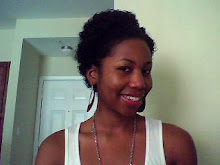This blog I will focus on a particular "myth" about black women and hair, as well as what I feel is the truth behind the matter.
Myth #1:
Women who wear weaves are actually "trying to look white" or "be white."
Another theory that this myth stems from has to do with assimilation. Relaxers, pressing combs, and flat irons were used to "get the kink out" of African American hair because for a long time in this country black women did not want to draw attention to themselves. In a time when African Americans were fighting so hard for equality in this country, many black people thought it was best to blend in as much as possible, in order to be treated as equal as possible.
Camille DeBose, an African American sociology professor at DePaul University notes,
“We try to mitigate our blackness. We want to be black but not too black.”Interesting choice of words by DeBose. According to Merriam-Webster's Online Dictionary, Mitigate means to "make less severe or painful" or "to become less harsh or hostile." That sort of wording is touchy because it actually implies that my race, my "blackness" is something that many races (including my own?) [still] view as harsh, hostile, and painful to others.
As sad as that statement sounds in the 21st Century, I agree with DeBose when she says that African American women want to "be black but not too black" because it means that many of us try hard to maintain our culture and be proud of who we are, while still blending in, and being accepted by the dominant race in the United States. "Mitigating" is a practice that not only black women feel pressure to succumb to, but many other minority races living within the United States.
Fact:
Take a good look at these women:



In modern days this myth does not exactly hold up entirely. On one hand, if I were to dye my hair blond, relax it bone straight, and grow it to my waist, there is no way that I would ever be mistaken for a white woman. On the other hand maybe I did subconsciously relax my hair because I wanted to "fit in" with the other girls at school and because it was what I saw all around me.
Therefore, I personally never relaxed my hair because I secretly wanted to be white. In fact, I have always loved my skin, my culture, and my heritage. I relaxed my hair because I was expected to. I like many young black women thought that relaxed hair was the norm because all the women in my family, at school, and on TV all seemed to do it. I was never taught how to take care of my own kinky texture in its natural state.
It is not uncommon in the African American community for girls to get their hair chemically relaxed from as early as 3 or 4 years old. As a matter of fact, the prevalent use of chemical relaxers on the hair of children in the black community is what sets us apart from any other race that uses chemical straightners, weaves, extentions, ect. The use of harsh chemicals should be reserved for women who are adults and can consiously make the decision to use them on their own.
Therefore, since so many African American women were uneducated from an early age about how to care for our own kinky, curly texture we turned to relaxers because for us its more convenient, the norm, the accepted, and easier to care for (or so we think).
As many of you already know relaxers can cause serious damage if not properly applied by professional and knowledgeable stylists. Hence, the popularity of weaves. Many black women have abused relaxers so much that a never ending cycle begins. From natural, to the pressing comb, to the relaxer, to the weaves, to the wigs. The evolution of black hair is still evolving as we speak.
So if you see a black woman with a weave or a relaxer please don't assume that she secretly wants someone to make her an honorary member of a straight haired race. Most likely, that woman was misinformed at an early age about how relaxed hair is not only easier to care for, but also more equivalent to mainstream America's standard of beauty. She could also be practicing the accepted norm in the black community, or an even "crazier" notion.
Maybe she just wants the same versatility and freedom to wear her hair straight without worrying about a drop of water falling on it and messing it up, just like many White, Asian, and Hispanic women have been doing for years through chemical processing.








